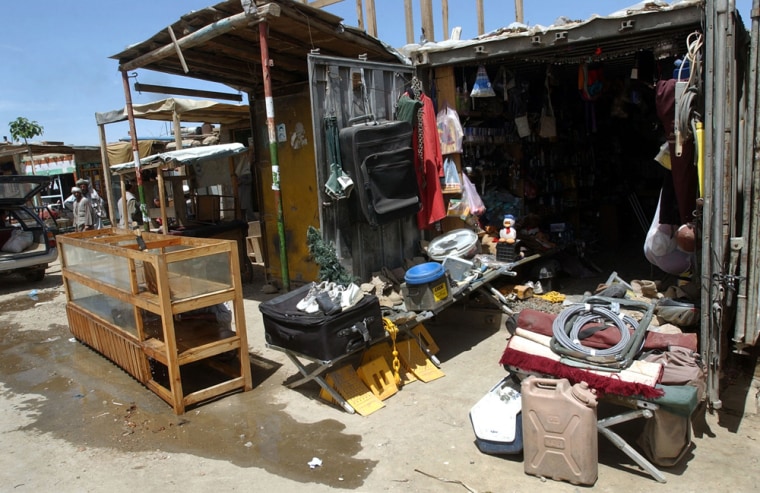Computer storage devices containing sensitive military information stolen from the U.S. base here and widely available in shops last month are now hard to find.
The U.S. military has increased security measures to prevent Afghan workers from slipping the small portable flash drives into their pockets in order to sell them to shops near the main American base in Afghanistan, a U.S. spokesman and shopkeepers said Monday.
One shopkeeper said Afghan workers on the Bagram base are now scrutinized carefully on their way out. “They even look in their shoes,” said the 40-year-old shopkeeper, who would only give his first name, Amruddin.
In April, dozens of used flash drives were available in markets here. Drives viewed by The Associated Press had the Social Security numbers of hundreds of soldiers, including four generals, and lists of troops who completed nuclear, chemical and biological warfare training.
Maps, charts and intel
The Los Angeles Times, which broke the story, reported that some drives had classified military secrets, including maps, charts and intelligence reports concerning the Taliban and al-Qaida.
Soon after those stories, the military went from shop to shop and bought all the drives they could find, concentrating on the used devices, which would be more likely to contain military information. Most shopkeepers said Tuesday they no longer had any used drives for sale.
Lt. Col. Paul Fitzpatrick, a military spokesman, said the majority of the drives the military bought were unused or had unclassified information on them. He said the investigation into the thefts was ongoing.
The military now has measures in place to better protect the storage devices, particularly the ones with classified information on them, Fitzpatrick said. He would not provide specifics.
“Could there still be stuff out there? Yes, there could be,” he said, noting there were 2,000 Afghan employees on the U.S. base. “But we will continue to monitor the situation. Gray and black market business is common in this country.”
Shopkeepers said they still received goods from inside the U.S. base, but not at the rate they once did.
One shopkeeper, who gave his name as Mohammed Agha, showed the AP three used drives Monday that he said came from the base, though that was impossible to verify. One of the drives had no information on it, and the other two were password protected. Agha said that last month he had dozens of used drives.
‘Mouse keeps freezing’
Agha did, however, show the AP a brand new Toshiba laptop computer he said came from the base. It had most of its original packaging, and scrawled in black marker on the outside of the computer box was: “Mouse keeps freezing.” He would not let the AP review the hard drive.
Also available at Agha’s shop was a used iPod he said came from the base and telephone calling cards from AT&T that said “military exchange” on them.
Amruddin said shopkeepers “did a very good business” when the American soldiers came through to buy their goods last month. He said he hasn’t had a used flash drive to sell since.
“A few people still bring small things from the base, but not like before,” he said.
